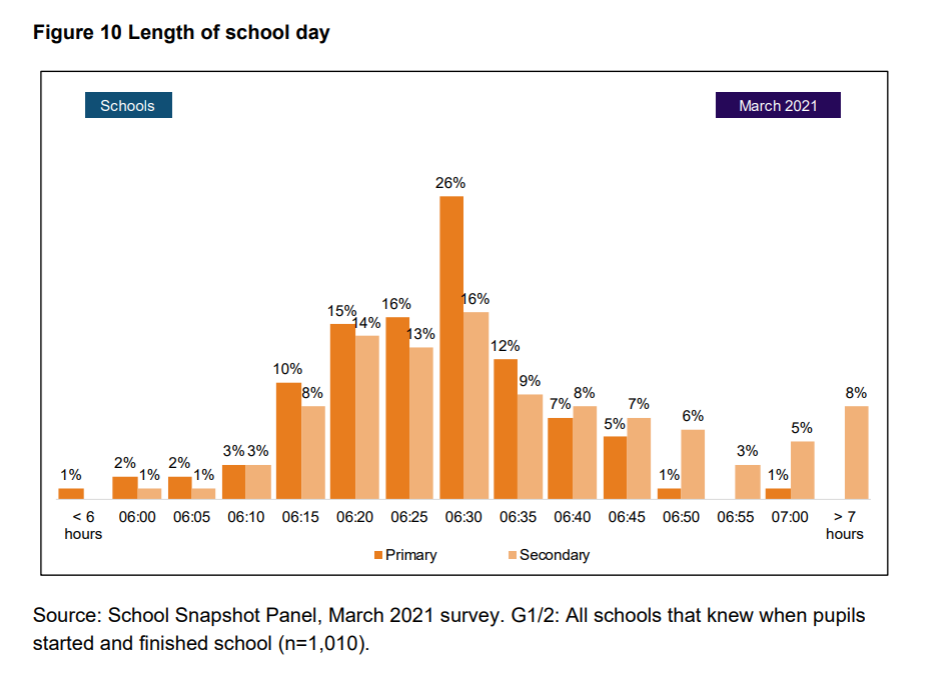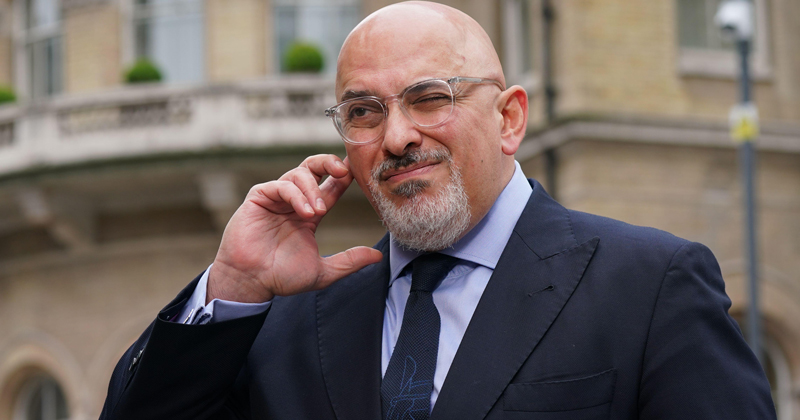The education secretary has said he would like to see all schools move towards a school day of six-and-a-half hours, but won’t commit extra money to fund it.
Nadhim Zahawi told MPs today that there were “some excellent examples” in some academy trusts of a longer school day “that I’m going to look at”.
He added that the average school day “now is six-and-a-half hours, and I’d like to see everybody move towards that average”.
He was quizzed by education committee chair Robert Halfon about his commitment to extending the school day after the spending review failed to allocate money to lengthen it for the majority of pupils.
The Department for Education claimed a review of time in school had informed the spending review, but that it had prioritised other catch-up measures that were more effective.
The government refused to provide the £15 billion funding that its former catch-up commissioner Sir Kevan Collins said was required to extend the school day.
Collins wanted the 10,000 schools that operated a shorter school day to extend to the 6.5-hour average.
However Collins resigned when the government allocated just £1.4 billion in additional catch-up funding in June, with nothing but a commitment to a review on the school day.
Last week’s spending review instead targeted £800 million at increasing by 40 hours a year the funded provision for 16 to 19-year-olds, with nothing for other age groups.
Zahawi said today: “I think the priority has to be for those children and students who have the least time available to them to recover, which is why the £800 million for the 16 to 19-year-olds additional 40 hours of education is so important to that, plus the £1bn going into secondary and primary, making the total £5 billion of recovery money.”
A school Covid snapshot survey from March, published last week, suggests around 49 per cent of primary schools and 40 per cent of secondary schools have a school day of less than 6.5 hours.

But of those that reported a shorter-than-average school day, most reported a day of at least six hours and 15 minutes in length. Only 1 per cent of primary schools and no secondary schools reported a day of less than six hours, while 8 per cent of secondary schools reported a day of longer than seven.
The data refers to the hours between when pupils start and finish school, not actual teaching hours.
3,822 schools have engaged with NTP so far this year
The education secretary was also quizzed on the effectiveness of the National Tutoring Programme, which he said had “reached 308,000 pupils in 2020-21” and was expanding to offer tuition to “up to two million pupils”.
He also said so far this year, 3,822 schools had engaged with the programme through the tuition partners and academic mentors arms, while 475 academic mentors have been “placed in schools in the most disadvantaged areas of England”.
Zahawi said an independent evaluation would “assess the programme’s impact on pupils’ educational attainment in all regions including the north and of course we will publish that”.
Home secretary pledges resources to protect from anti-vaxxers
Zahawi also told MPs that the home secretary had pledged to make “any resources available that the sector needs” to protect schools from anti-vaxxer protests. The DfE and Home Office have been approached to explain what this means.
He said: “There is no place for anti-vaxxers harassing or coming anywhere near school leaders, and I have the assurance of the home secretary that she will make any resources available that the sector needs to make sure those people in our schools are protected and able to get on with the job of teaching children and protecting them.”
He added that there was a “unit at the Cabinet Office” that was working with social media platforms to “highlight antivax misinformation and take it down as quickly as possible”.
“I continue my work with the home secretary to make sure that no-one feels under-threat in any of our educational establishments from anti-vaxxers.”
















Your thoughts